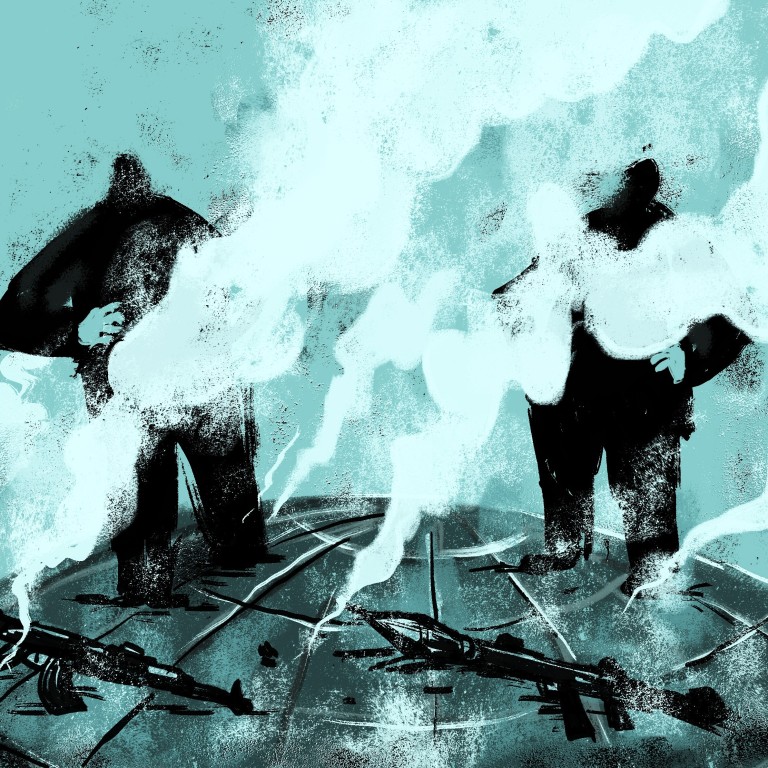
9/11, 20 years later: did the tragedy give US-China relations a respite?
- Beijing saw the opportunity to reset its relationship with Washington, which needed its support and agreed to label ETIM a terrorist group
- More recently, analysts say, the US focus on other theatres has emboldened China’s aggressive moves in the South China Sea and elsewhere
The deadly terrorist attacks against the United States on September 11, 2001 prompted an outcry from around the world: “We are all Americans.” But even before the dust had settled around the World Trade Centre, Washington’s policies realigned around fighting terrorism and bilateral relationships strengthened or crumbled depending on where other governments stood. Wars and occupations ensued, ending in a rushed military withdrawal from Afghanistan by US forces last month. In the first in a series about the legacy of 9/11, Mark Magnier explores how the attacks altered the course of the US-China relationship.
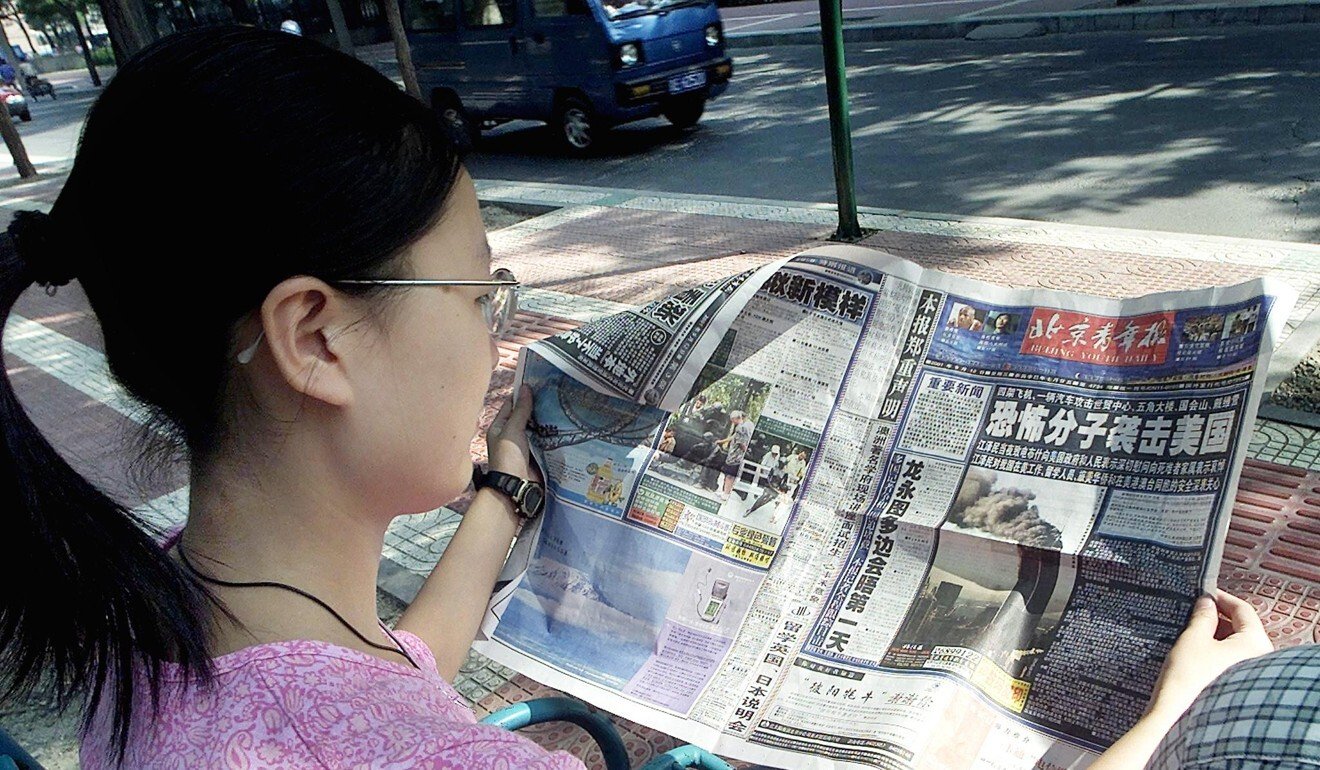
“We had a diversion,” said Freeman, the former No 2 in the US embassy in Beijing and ex-China affairs director at the State Department. “It’s like a line on a chart that has a big dip, then the trend is back.”
US says Chinese rule on South China Sea access threatens freedom of navigation
China was hardly alone in these calculations, but its size and prominence meant it had more to gain.
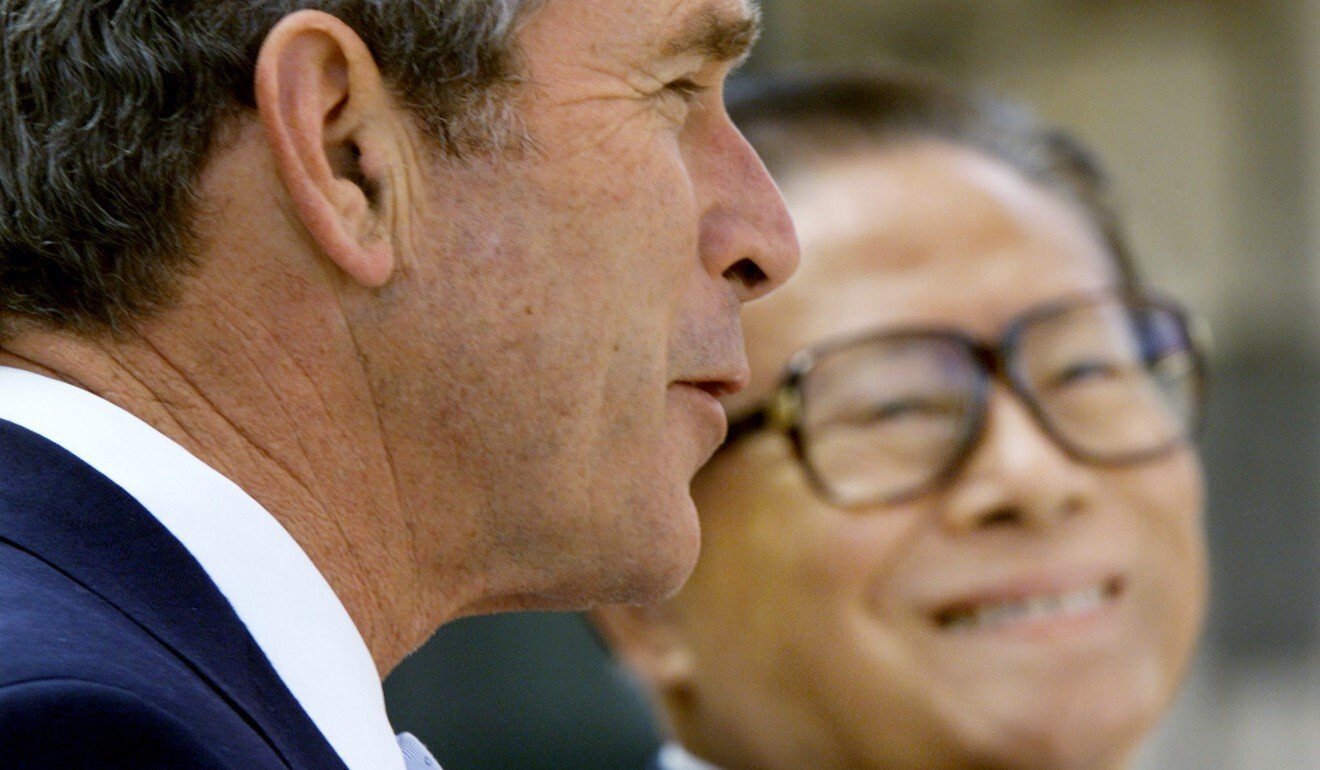
There was certainly heartfelt shock and empathy early on, recalled Cheng Li, a Brookings Institution fellow who was flooded with “today we are all Americans” messages from Chinese scholars and friends. But the strategic opportunity was not lost on Beijing, with Jiang among the first foreign leaders on a September 12 call to extend condolences and offer support.
“9/11 was a strategic gift,” said M. Taylor Fravel, strategic studies director at the Massachusetts Institute of Technology.
This soon paid off, as relations rapidly improved. The following year, Washington agreed to designate a somewhat amorphous and not particularly well-organised Uygur liberation group, the East Turkestan Islamic Movement (ETIM), as a terrorist organisation, with the European Union and the United Nations following suit.
Washington also worked to rein in pro-independence voices on Taiwan, though this was driven as much by the then-Taiwanese president’s penchant for provocation as any war-on-terror realignment.
“I was there, and know it to be a fact, that it was largely Chen Shui-bian,” said Dennis Wilder, a Georgetown University assistant professor and a former National Security Council special assistant to the president. “President Bush became very irritated with Chen and his refusal to listen to Washington.
“He was Excedrin headache No 1.”
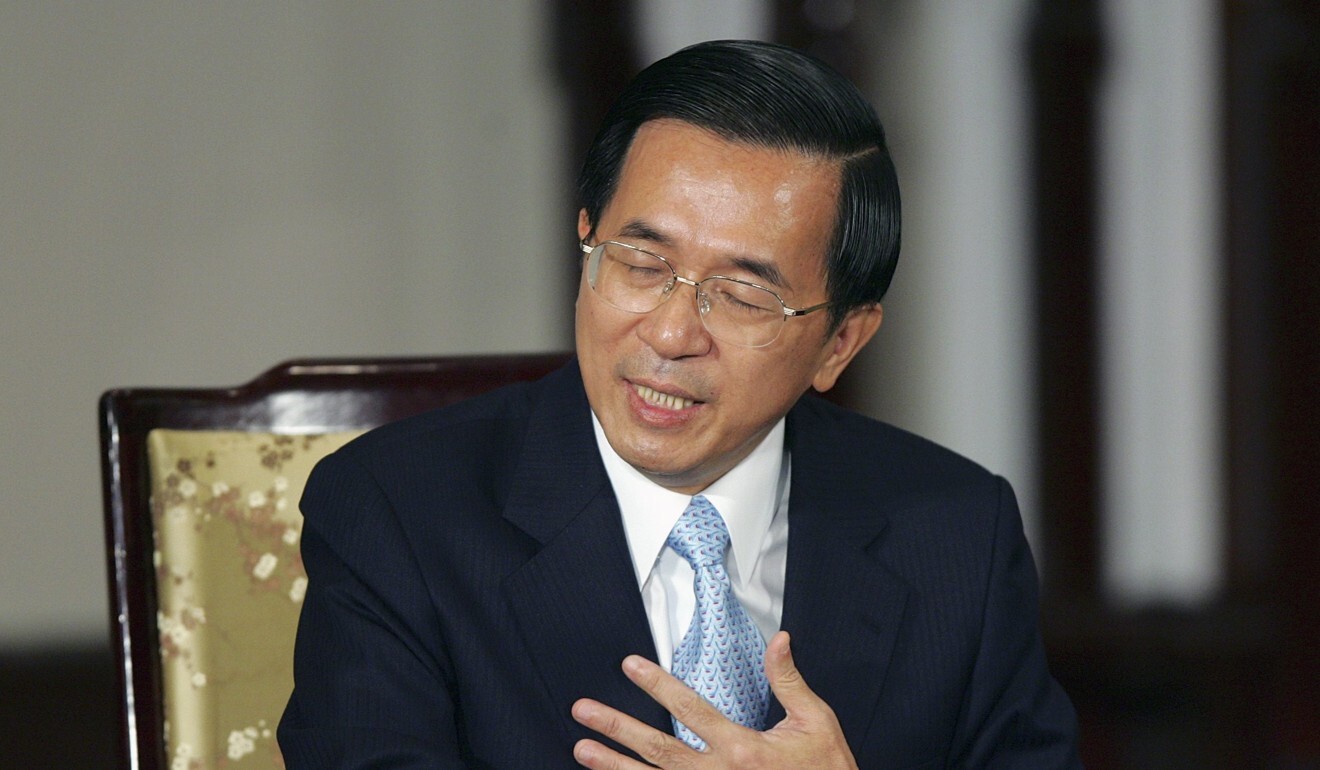
For Beijing, the listing of ETIM as a terrorist group was evidence that Washington was finally taking its concerns seriously, while Washington saw it more as the cost of gaining China’s support elsewhere, analysts said.
“China had been asking us to do that for years and we’d say, ‘Who are these guys? We don’t really see it, we don’t see an organisation, don’t see the activity,’” said Richard Boucher, a Brown University Watson Institute fellow and former assistant secretary of state for central Asia. “It was done to help gain China’s support for invading Iraq.”
‘US chaos’: China vows to help Afghanistan and insists America pays too
“We knew the Chinese wanted to use it as an excuse to go after all sorts of Uygurs, which it was probably going to do anyways,” added Boucher, once a consul general to Hong Kong. “Since 9/11, we’ve found terrorists under every mattress, but never found anyone serious with the Uygurs.”
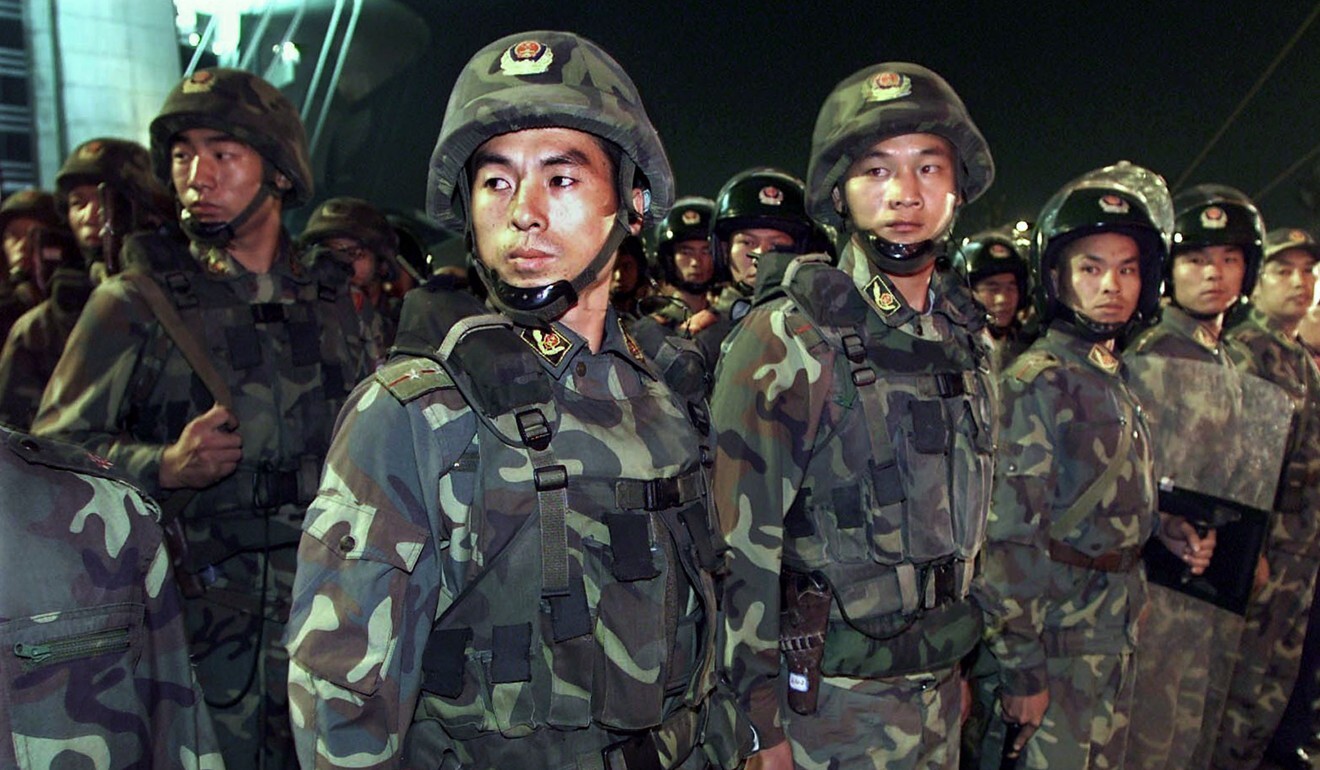
Following ETIM’s delisting, Beijing accused Washington of an “ugly two-faced approach” to counterterrorism. “Terrorist organisations are terrorist organisations,” Foreign Ministry spokesman Wang Wenbin said.
Since September 11, China’s official military budget has expanded rapidly – growing by more than 12 per cent annually from 2001 to 2021’s 1.35 trillion yuan (US$209 billion) – though it remains far behind US levels.
This also coincides with China’s explosive economic growth; its desire to protect its growing global trade flows; and recognition after the first Gulf War that the People’s Liberation Army was flabby and technologically lagging.
Stop selling arms to ‘non-state actors’, China urges, in likely swing at US
Washington’s shock over al-Qaeda’s brazen September 11 attack saw it overhaul US security; restructure its alphabet soup of intelligence agencies; and sharpen its Middle East focus.
China’s response was narrower and more regional. Even as it ramped up budgets, it held off wholesale restructuring, limiting its focus to overseas challenges seen as threatening “social stability” and Communist Party rule at home, mainly the ETIM and Tibetan diaspora.
“For Beijing, they don’t really distinguish between terrorism, extremism and separatism,” frequently using “terrorism” with foreigners and “separatism” among Chinese, said Sean Roberts, associate professor at George Washington University and author of The War on the Uygurs: China‘s Campaign Against Xinjiang’s Muslims. “They call them the ‘three evils’.”
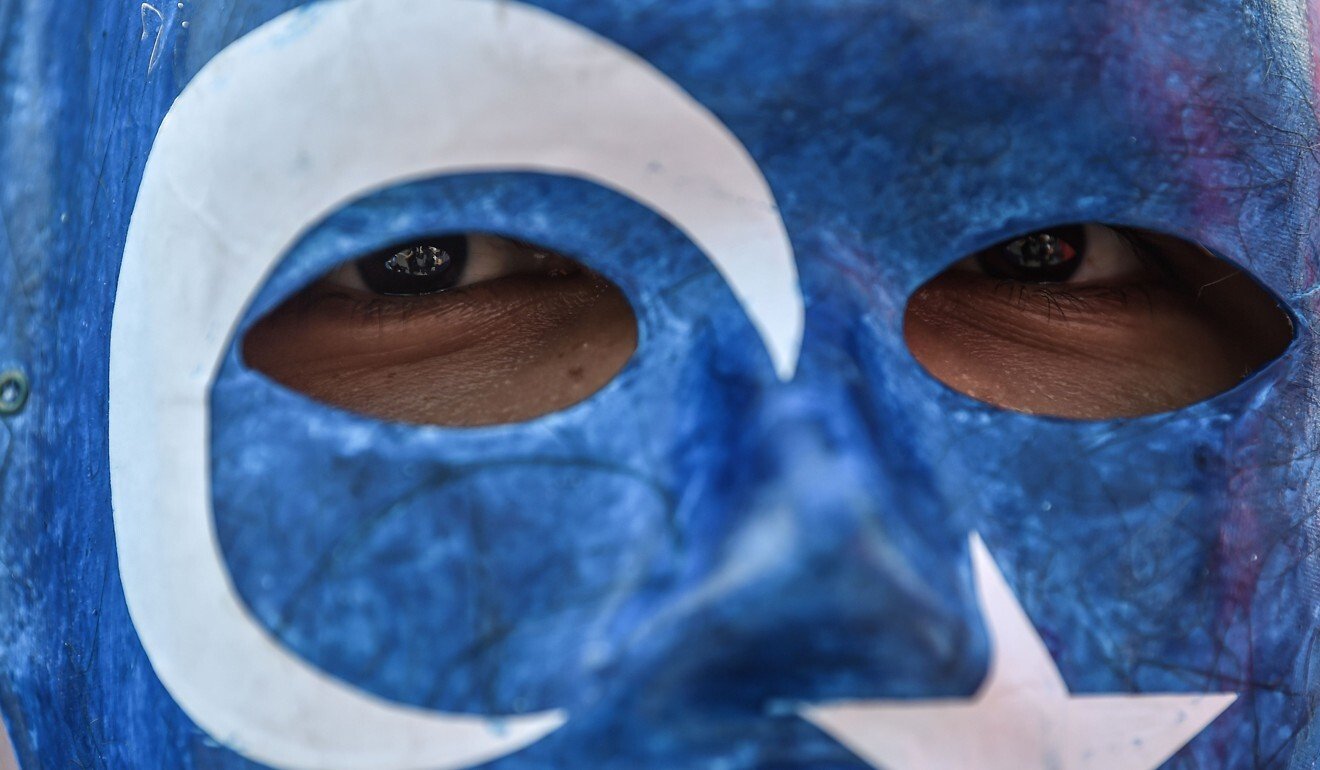
Starting in the years leading up to 9/11 and continuing as its economic and political clout expanded, China has also made effective use of foreign proxies, especially Pakistan, to monitor and contain perceived enemies, making less obvious its foreign footprint, analysts said.
Beginning some time around 1999, China used Pakistan to pressure the Taliban into neutralising Uygur militants based in Afghanistan, largely by shutting down their China-focused training camps and transferring them into general jihadi camps that diluted their focus and impact, said Andrew Small, a German Marshall Fund fellow and author of The China-Pakistan Axis: Asia’s New Geopolitics.
Beijing also offered the Taliban incentives, discussing direct China-Afghanistan flights, having the Chinese tech giant ZTE Corp help build Afghan telecommunications and fanning hopes it might help the pariah state gain international recognition.
“Basically, the same sorts of deal that Beijing is presently try to establish with the Taliban,” Roberts said.
In 2000, China’s ambassador to Pakistan, Lu Shulin, became the highest ranking non-Muslim to meet Afghanistan’s then-leader Mullah Omar; Beijing has maintained contact with the Taliban through Pakistani channels ever since, said Small.
At one point after the US-led invasion, Washington raised concerns over the amount of Chinese-made weapons reaching Taliban hands, Small said, but since most involved basic technology easily sourced elsewhere, the US did not make a huge fuss.
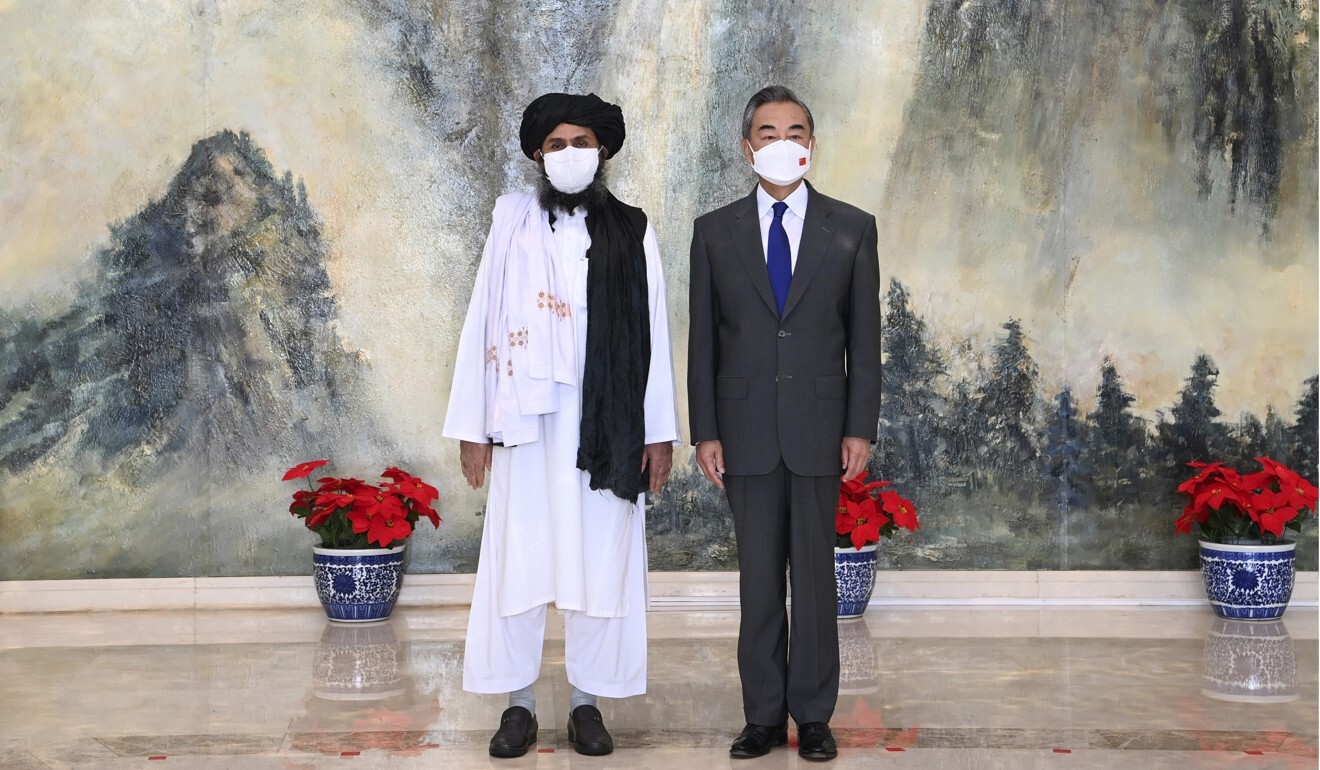
Despite China’s narrower approach to global extremism, however, it continues to monitor US tools and tactics closely.
“China should learn from America’s own useful experience in collecting intelligence on terrorist financing mechanisms, abandon its bad methods and ceaselessly perfect China’s counterterror financing intelligence mechanism and system,” wrote People’s Public Security University of China scholars Liu Xiaojie and Mao Xinjuan in July’s Journal of Intelligence.
Washington’s ability to track terrorist money trails make up for its “deficiencies in traditional human intelligence”, the article added.
Top Chinese and American diplomats discuss Afghanistan amid tense relations
The second post-9/11 decade saw US-China economic, political and military tensions increase, with Beijing’s island-building in the South China Sea a major irritant. Some analysts consider China’s moves an extension of President Xi Jinping’s muscular nationalism – as well as an assessment of US foreign policy under President Barack Obama.
“There was a bit of calculation that the US was distracted by things in Syria and elsewhere. And I think they saw Russia move into Crimea and the US not take action,” said Wilder. “They made a calculation that the US would not act.”
Others see it as less personality-driven and more the result of China’s growing, and America’s waning global power – with the US sharing some blame for acting provocatively and needing a foil.
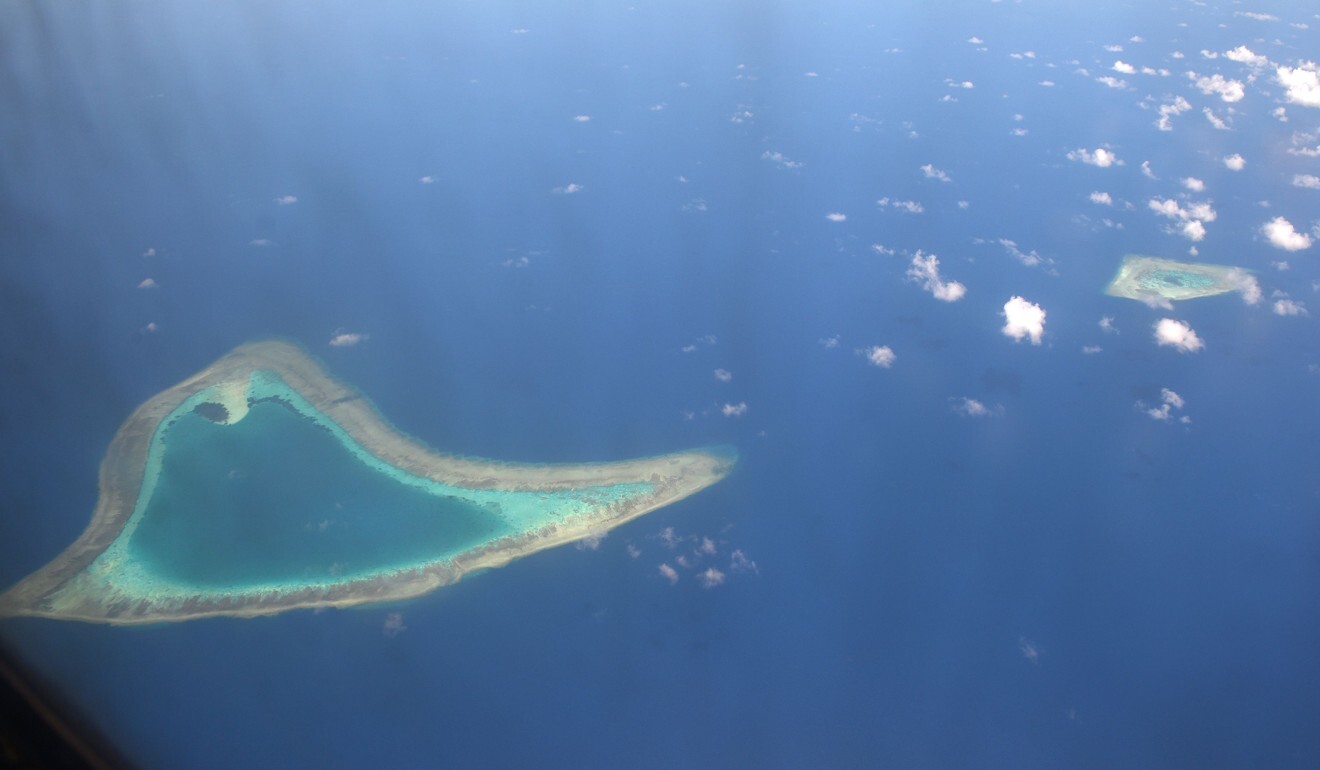
“We’re in their space, they’re not in ours. They’re not off Puget Sound or Norfolk, Virginia,” said Freeman. “And it’s useful to have a bogeyman. You have to have an enemy to justify big defence expenditures.”
At the 20-year mark, the prospects for a return to the warmer times that followed September 11 – capped by President Bush’s appearance at the 2008 Beijing Olympics – seem distant at best.
Former president Donald Trump’s administration punched through many diplomatic, trade, military and Taiwan norms; China has become more defiant; democracy is being tested globally; and opinion polls show growing wariness worldwide towards China and Xi as hardliners on both sides frame relations as a zero-sum ideological confrontation.
“In this country, there is great debate going forward that’s still unsettled on what the future relationship should look like,” said Fravel, even as the two nations’ size and global importance suggests they’ll need to find common ground. “Breaking up is hard to do.”
More immediately, the chaotic US departure from Afghanistan has prompted a flurry of strategic planning meetings in both capitals. “It was one of these wars where China wanted both sides to lose and absolutely didn’t want either side to win,” said Small.

03:21
Departure of last American soldier from Kabul marks end of 20-year US mission in Afghanistan
Amid renewed fear of instability at its border, Chinese senior leadership appears worried that the hasty, tumultuous US withdrawal will deepen partisanship in Washington, prompting hawks to direct their ire at Beijing, Li said. “The concern is that this adds more danger for China.”
“It may be that the two sides do things in parallel that are not incompatible with each other, without obviously cooperating,” said Small.
“It’s going to require a lot less hubris on both sides,” added Roberts. “The US has to understand that its position globally has changed. And China probably has to understand that it’s not going to be the only hegemon in the world.
“The incentives now are not toward a lot greater US-China cooperation.”
Additional reporting by Jacob Fromer








